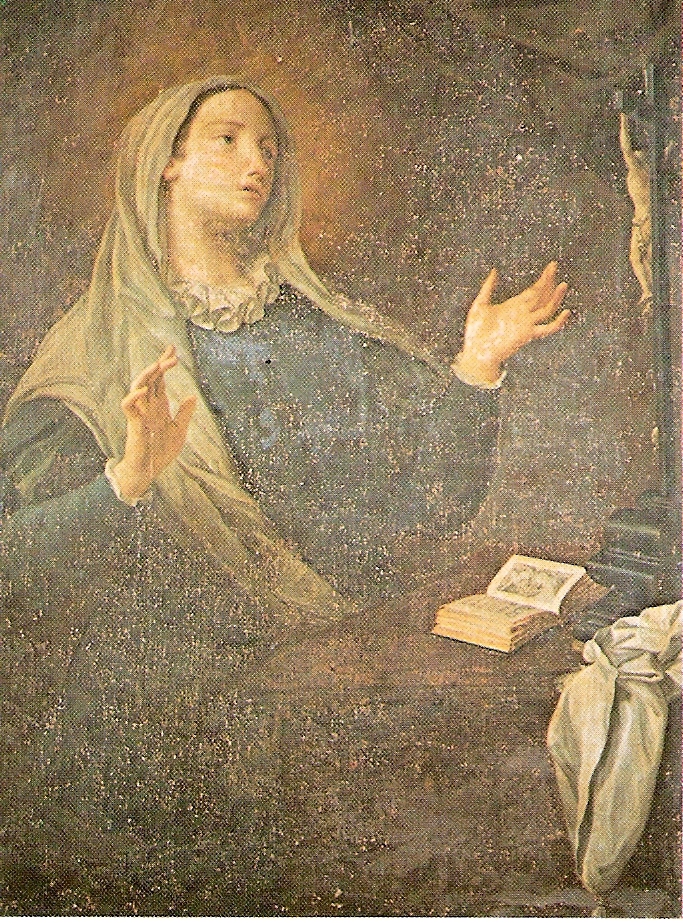
The life of St. Catherine of Genoa confirms that spiritual renewal, virtue, holy reflection, and spiritual direction lead to wisdom and discernment. Born into an illustrious Italian family that was connected to two popes, Catherine was known as a quiet and pious child, being both prayerful and obedient. She expressed an interest in the convent at the age of thirteen but she was turned away because she was too young.
At the age of sixteen she married Julian Adorno, a nobleman of her parents’ choosing. Unfortunately, Adorno proved to be weak in character. He was a spendthrift, violent-tempered and unfaithful. His financial imprudence eventually bankrupted the family while his ill temper robbed his wife of her elan. For the first five years of their marriage, Catherine attempted to obey Adorno, and then for the next five years she turned to the world and the company of frivolous women to console her. The strain of her unhappy marriage coupled with a spiritual life turning lukewarm sent Catherine into a deep depression. Realizing her miserable condition, she prayed for her previous spiritual fervor to be restored and asked the intercession of St. Benedict.
Catherine’s turning point came in the year 1473. At the urging of her sister who was a nun, she went to confession to a holy priest. As soon as she knelt down in the confessional, she was overcome both with the wretchedness of her own sin and the immense love and mercy of God. The revelation was so overwhelming that she swooned in an ecstasy. For days, her only utterances were sighs of contrition and sighs of love. Catherine’s miraculous restoration of faith took place on the feast of the saint whose intercession she sought, St. Benedict.
The impact of Catherine’s experience was profound. Her desire for Holy Communion was an unquenchable thirst; she tended to her home duties with diligence and love and yet spent six hours a day in prayer; she began to devote herself to the poor and sick and cared for them without regard for her own health or well being. Soon, her husband Julian was brought to conversion and then to an active faith, ultimately becoming a member of the third order of St. Francis. Now living as brother and sister, the couple moved near the Hospital of Genoa and devoted themselves to tending the sick. When Julian died in 1497, Catherine provided for his illegitimate daughter, named her in her will, and forgave her husband’s mistress. For several years after, Catherine acted in the capacity of administrator and treasurer of the hospital and died in 1510 from an undiagnosed illness. Some say she died of exhaustion of body and soul, consumed by the fires of divine love burning within her.
“We should not wish for anything but what comes to us from moment to moment exercising ourselves nonetheless for good.”
-Saint Catherine of Genoa
Wisdom is the gift to see all aspects of our life through the eyes of God. St. Catherine of Genoa came to see that even her struggles with her husband could bring great spiritual benefit when surrendered to God. Difficult trials and difficult people are often the “instruments” the Lord uses to bring us to true holiness of life. Where am I currently struggling in my life? What trial is now facing me? What may God be saying to me in the midst of it?
Excerpt from Full of Grace Women and the Abundant Life Women of Grace Foundational Study Series
Women of Grace television program with host, Johnnette Williams:
Conversion: An Encounter with God Part 1
With Guest, Fr. Donald Haggerty, author of Conversion: Spiritual Insights into an Essential Encounter with God
Conversion: An Encounter with God Part 2
With Guest, Fr. Donald Haggerty, author of Conversion: Spiritual Insights into an Essential Encounter with God
For information about this and other Women of Grace saints, join one of our many opportunities to connect at womenofgrace.com/connect.











